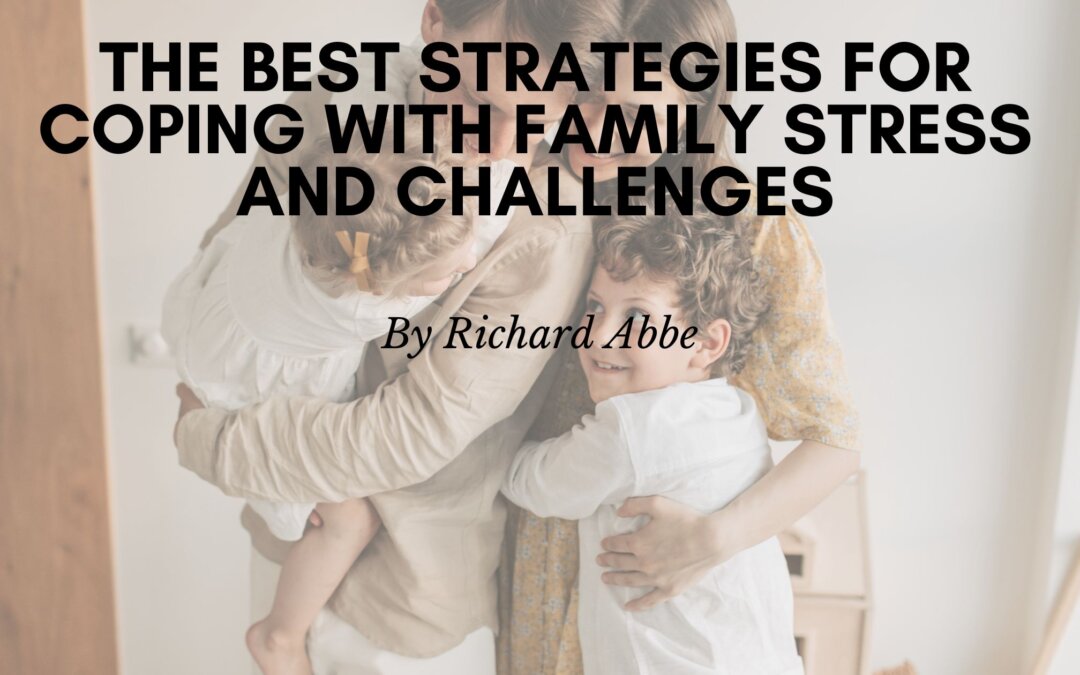Family life can be a source of great joy and fulfillment, but it also comes with its fair share of stress and challenges. Balancing work, relationships, and responsibilities can sometimes lead to tension and conflict within the family unit. However, by implementing effective coping strategies, it is possible to navigate these challenges and foster a harmonious and supportive family environment.
1. Open and Honest Communication
Communication is the foundation of any healthy family dynamic. Open and honest communication allows family members to express their thoughts, feelings, and concerns in a respectful and non-judgmental manner. Create an environment where everyone feels safe to share their thoughts and actively listen to one another. By fostering effective communication, you can address conflicts early on, find common ground, and work toward resolution.
2. Practice Active Listening
Active listening is a crucial component of effective communication within the family. It involves giving your full attention to the speaker, maintaining eye contact, and demonstrating empathy. When family members feel heard and understood, it can help alleviate tension and promote understanding. Encourage each family member to actively listen to one another, creating a supportive and compassionate atmosphere.
3. Set Boundaries and Prioritize Self-Care
Family stress often arises when boundaries are not clearly defined or respected. Establishing and maintaining healthy boundaries is essential for everyone’s well-being. Encourage open discussions about individual needs and expectations, and work together to establish boundaries that respect personal space, privacy, and time. Additionally, prioritize self-care for each family member. Encourage activities that promote relaxation, stress reduction, and personal growth.
4. Conflict Resolution and Problem-Solving
Conflict is a natural part of any family, but how it is managed can make a significant difference in reducing stress. Teach and model healthy conflict resolution techniques, such as active listening, compromise, and finding win-win solutions. Encourage family members to approach conflicts as opportunities for growth and understanding rather than as personal attacks. By focusing on problem-solving and finding common ground, you can reduce stress and build stronger relationships.
5. Seek Professional Help When Needed
Sometimes, family stress and challenges may require the help of a professional. Don’t hesitate to reach out to therapists, counselors, or mediators who specialize in family dynamics. These professionals can provide guidance, facilitate discussions, and offer strategies for coping with specific challenges. Seeking professional help is a proactive step towards creating a healthier and more harmonious family environment.
6. Practice Empathy and Understanding
Empathy is the ability to understand and share the feelings of others. By practicing empathy within the family, you can foster understanding, compassion, and support. Encourage family members to put themselves in each other’s shoes, considering the perspectives and emotions of others. This helps to build stronger connections and promotes a sense of unity and empathy.
7. Create Quality Time and Bonding Activities
Amidst the busyness of everyday life, it’s important to carve out quality time for family bonding. Plan activities that encourage interaction, laughter, and shared experiences. This could include family meals, game nights, outdoor adventures, or simply spending time together engaging in meaningful conversations. Creating these positive experiences helps strengthen family bonds and reduces stress by fostering a sense of unity and connection.
Family stress and challenges are inevitable, but by implementing effective coping strategies, you can navigate them with resilience and grace. Open and honest communication, active listening, setting boundaries, prioritizing self-care, practicing conflict resolution, seeking professional help when needed, fostering empathy and understanding, and creating quality bonding time are all powerful tools for coping with family stress. A strong and supportive family unit is built on love, understanding, and a shared commitment to navigate challenges together.

